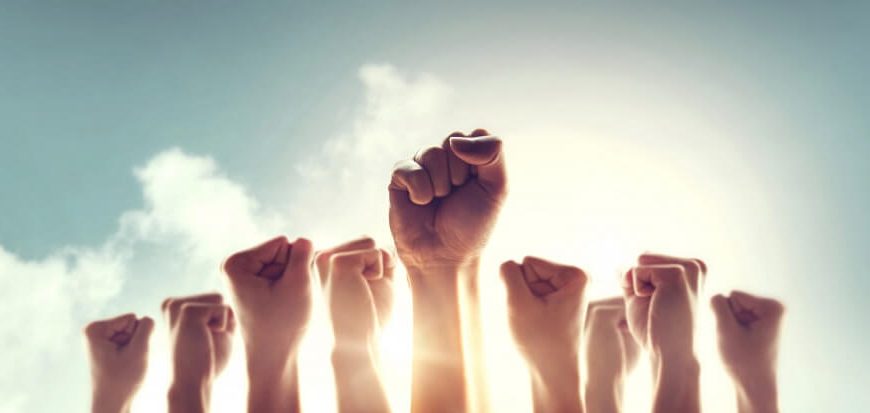Our country, India, is a culturally-rich, diverse and vast nation with the world’s largest population. To safeguard the wellbeing and freedom of the entire population, the Indian legal framework has certain Fundamental Rights. They act as a protective shield for every Indian. We will explore what is Fundamental Rights in India in a quest to help children understand that they are an important part in participating in the wellbeing of oneself and the country.
What are Fundamental Rights?
Fundamental Rights is a set of rights guaranteed by the Indian Constitution to every citizen of the country, irrespective of age, gender, religion, ethnicity, profession, etc. So these rights are for children as much as they are for adults of the country. Fundamental Rights of India can be thought of as rules, just as there are rules at home, in school, in parks, so that no one is treated in an unjust or biassed manner. It ensures that everyone is treated equally.
What are the Fundamental Rights of India?
- The Right to Equality:
- The Right to Freedom:
- The Right Against Exploitation:
- The Right to Freedom of Religion:
- The Educational and Cultural Rights:
- The Right to Constitutional Remedies:
The Right to Equality means that everyone should be treated equally before the law. No one can be treated unfairly in India because of their religion, race, caste, gender, and place of birth. Just like every student should be treated fairly and equally in the school, every citizen of the country should be treated fairly and equally too.
The Right to Freedom means that in this country, we are free to express ourselves without any fear. We can play, speak, and express our thoughts. It also includes the freedom to move around the country and settle down anywhere we like. We can also choose our profession. Just like children are free to choose and practise their hobbies, parents can choose a job or profession to their liking and advantage.
The Right against Exploitation means that human trafficking and forced labour are prohibited. Child labour is also strictly prohibited to ensure there is no exploitation of children.
The Right to Freedom of Religion means that every citizen has the right to choose their own religion without any restriction. In India, they can choose Hinduism, Islam, Christianity, Buddhism, Jainism, or any other religion to their affinity and belief. No one can stop them. For children, it will be like the right and freedom to choose their favourite game or toy.
The Right to Education means that every child in the country should be able to get education. It is like a right to learn and grow. Every child should have the opportunity to go to school to learn and grow. The government also takes measures to ensure that there are enough schools and teachers for all the children in the country. The Right to Culture means that every Indian has the right to protect, preserve and practise their culture, tradition, and language. Just like all children celebrate their family’s traditions and festivals, all citizens are allowed to celebrate their traditions, cultures, and festivals. India is a diverse land of traditions, cultures, languages, and dialects, and they should be able to practise them without anyone stopping what they believe in.
The Right to Constitutional Remedies means that a citizen of India can approach the court If their rights are violated. Just like children can go to their parents or teachers if someone does wrong to them, the citizens of India can also approach the authorities if their Fundamental Rights are disrespected. It is like having a superhero in real life.
These are the Fundamental Rights of India ensuring that all citizens of the country are treated justly.
How many Fundamental Rights are there in the Indian Constitution?
There are six Fundamental Rights in the Indian Constitution. Previously, The Right to Property (Article 31) was also included in the Fundamental Rights of India. Therefore, the list of Fundamental Rights in India has a total of six Fundamental Rights.
Here is the list of Fundamental Rights in order: The Right to Equality The Right to Freedom The Right Against Exploitation The Right to Freedom of Religion The Educational and Cultural Rights The Right to Constitutional Remedies
How does this list of Fundamental Rights help children in India?
- It ensures that children from all backgrounds are treated equally in schools, homes, and elsewhere.
- It ensures that the children can get creative with their ideas and can play, speak, and express as they deem fit.
- It ensures that children are not forced into child labour. Children are meant to play and study for a bright future.
- It ensures that children have the freedom to celebrate and practice traditions and cultural festivals that they feel connected to.
- It ensures that all children can pursue education for a holistic future.
- It ensures that children are protected by law in the country, and that they can approach the authorities if there is any wrongdoing towards them and their lives.
Conclusion
In India, the children are encouraged to know what is Fundamental Rights and about constitution day, the Fundamental Rights of India, how many Fundamental Rights are there in the Indian Constitution, and the whole list of Fundamental Rights in the country, so that they are able to lead their lives of children as freely and productively as possible without fearing the loss of dignity that they have in the country as children. They are further encouraged to know about the protective measures that the Indian Government has placed for the wellbeing of children so that they know they are not alone in any battle in their tender age.
For more such blogs, visit EuroKids website!














